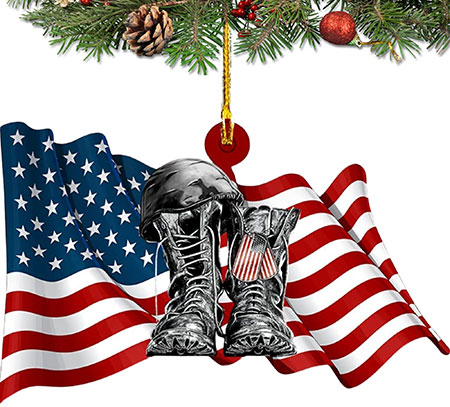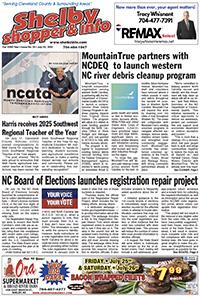In our country's history, brave soldiers have spent Christmas far away from their families during times of war. For soldiers from World War I to Afghanistan, staying in touch with their families was critical as letters were written and sent to their son or daughter deployed. Christmas songs were essential to how they connected to their homes and family. What are the stories behind the songs sung from World War I to Afghanistan? Songs like "Silent Night" and "I'll Be Home for Christmas."
In 1914, on Christmas Eve, a German soldier stood atop the trenches of WWI and sang "Stille Nacht." Moments later, a group of British soldiers respond with the words "Silent Night." Throughout the night, carols were sung back and forth across no man's land. The following day, German soldiers come out of the trenches, offering gifts and food. At first, the British and French soldiers are unsure, but quickly realize that both sides want to celebrate Christmas. The soldiers ate together and played soccer, and the Germans brought an evergreen tree with candles on it for the celebration. This Christmas truce was made possible by the enlisted men. No general or diplomate ordered the Christmas Truce of 1914. Soldiers shared traditions and memories of their families as they heard the words of Silent Night and sang other familiar carols.
During WWII, the United States had over sixteen million men and women in the military worldwide. Families wrote letters and sent packages to military personnel from Europe to the South Pacific. The Armed Forces mail system encouraged families to ship by October 15 to be sure it arrived by Christmas. Let me share a story about my Dad and his experience with the mail. Radarman Third Class William Weller was in the US Navy aboard the USS Starr somewhere in the Pacific Ocean. He was married and had two daughters at the time, who were six and four years old. The girls decided to send sugar cookies to him as a Christmas gift. They used popcorn to help protect the cookies. In March 1945, they got a letter from their Dad stating that all the sailors on his watch enjoyed the cinnamon sugar popcorn they had sent as a gift.
Bing Crosby was singing the song "I'll Be Home for Christmas," describing a soldier far from home thinking about what they remember each Christmas. "Please have snow and mistletoe and presents by the tree." The USO reported it was the most requested song on the radio overseas.
Woody Weaver, an Air Force veteran of 23 years, shared his story of Christmas by showing a postcard that his father, who
was in the army, sent to his parents in Pennsylvania during WWII. Notice the palm tree instead of an evergreen. His Dad was in the South Pacific Theater. Woody served in the Air Force and was away from his family for Christmas while stationed in Thailand and Iceland. Letters home to his family and gifts mailed from his three daughters made it feel like Christmas wherever he was.
The Korean Conflict had soldiers stationed in a part of the world where we knew little about the country. No one expected the cold or heavy snow that hit Korea in 1952. Letters home requested socks, gloves, and toboggans. Cpl. Jack Whitworth from Cherryville shared that on Christmas Eve 1952, he spent the night in a fox hole when the temperature got below freezing, and Jack was never warm after that night. His wife Linda shared that Jack always had a blanket on, even in the summer. "I'll Be Home for Christmas" quickly became popular as personnel tried to continue traditions like Christmas trees. Having a special Christmas meal was the goal of every command.
My older brother John spent five Christmases in Vietnam and Clark Air Force Base. I remember my Mom would write letters to him every week. Her favorite hymn was "Silent Night." From Christmas Eve until late in the evening of Christmas Day, she would play the song and look at the table where a place was set for John. One year, he was able to get access to a phone on Christmas Day and called home for three minutes, strictly enforced as others were waiting to call home, too. I still hear my mother singing the words to Silent Night like a lullaby, "Sleep in Heavenly peace; Sleep in Heavenly peace."
After 911 and the war on terror, soldiers in the Middle East and Afghanistan became dependent on the military postal system to get letters and packages to personnel around the world.
In 2005, Shelby native Patrick Tiernan, Jr., was based in Iraq with the
3rd Battalion 6th Marine Regiment, took advantage of technology to stay connected with his family. "I'll Be Home for Christmas." was played on the base radio station and back in the States. Whether through letters, calls, or digital messages, the song held the promise of being home with family, bridging the distance between soldiers and their loved ones during the holiday season.
As we reflect on the stories of soldiers through different wars, we realize the importance of the family staying connected to their loved one who was deployed using letters, care packages, and songs they enjoyed. With modern technology, people may now use FaceTime or video conferencing to see their loved ones overseas.
It becomes clear that the songs of Christmas have been a source of comfort and hope, even in the most challenging times. The timeless melodies of "Silent Night" and "I'll Be Home for Christmas" remind us that the spirit of the holiday season surpasses time and place, offering a connection to home for those who have sacrificed so much for our country.
This Christmas, stop and say a prayer for all those deployed around the globe, serving locally as law enforcement officers, EMTs, firefighters, and medical personnel who give up time with their families so you may enjoy being home for Christmas.
|






